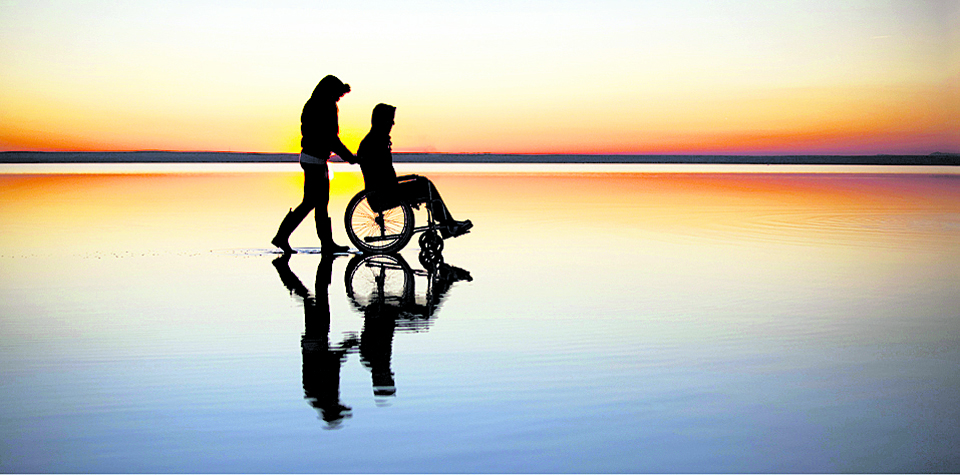
OR
Opinion
Making Nepal more inclusive for differently abled people
Published On: August 28, 2023 09:15 AM NPT By: Simone Galimberti


Simone Galimberti
Simone Galimberti is the Co-Founder of ENGAGE, an NGO partnering with youths to promote social inclusion in Nepal.simone_engage@yahoo.com
In a recent meeting, I once again realized the constraints that young persons living with physical disabilities face in daily life. The common perception is that the vast majority of these youths struggle for survival. Lacking jobs and quality education not only due to inaccessible schools but also due to a system that does not recognize their specific needs, these youths are left behind by society.
They simply hang on, looking for opportunities that, most of the time, do not materialize. There is a lot of truth in this understanding of the challenges faced by youths living with physical disabilities but we also need to admit that it is not the full picture. It is not because there are also outstanding cases where, despite the barriers and obstacles posed by the society, some of them truly succeed, get noticed and recognized for their strengths and know- how.
But it is not the full picture because in between the two extremes just sketched out above, there is a group of youths with disabilities who successfully managed to navigate the complexities of life and have got some confidence about the future. Yet the achievements so far accumulated are not enough. Their level of self-efficacy, a concept developed by the late psychologist Albert Bandura that refers to “an individual's belief in his or her capacity to execute behaviors necessary to produce specific performance attainments” is still too low for them to think far and ambitiously or simply differently.
They have to settle for whatever the country offers without any chances at thinking or even dreaming something that for them would be “unusual” or “out of track” but for others, would be just a chance at trying something. At the end of the day, it is really about freedom, isn't it?
The meeting I was referring to at the beginning of this piece was with a colleague of mine, Sushil Adhikari, an inclusion activist, an Asia Foundation Fellow and co-founder of the Bright Star Society. We were visiting a group of young women, all with visual impairment but living independently together. In many ways, these young citizens are an example for many of their younger peers.
Coming from outside the Valley, they got enrolled in local university colleges and they are living a life on their terms. Yet they have been facing an array of limitations, barriers and obstacles while charting their future. Their only option at really “making it” in terms of having some life security and stability was to try to pass the Teachers Service Commission’ examination.
While talking about jobs, these young women could not envision a different scenario. Their only chance at life was getting selected through a public competition that would, eventually, land them a teaching job.
Now, do not get me wrong.
There is nothing wrong with teaching. It is actually one of the most noble professions, even if it is not fully understood nor recognized by society. Yet having a crop of teachers with visual impairment could not only make a profession richer and more diverse but also profoundly impact students’ perceptions about disability and social inclusion. So, on one hand, the idea of having more persons with disabilities embracing the teaching field should be welcome.
But, at the same time, I was wondering, were these young women really embracing the prospect of becoming teachers? How much passion do they have for a job? In other conditions and circumstances, what would they have chosen? Which career would they have opted for?
While it is true that becoming a teacher does not preclude a person also to pursue a different career on the sidelines (see, for example, how many bestselling authors decide to remain full time teachers despite the possibility to shift to a full-time writing career), somehow, while listening to them, I was feeling angry and frustrated.
It was not the first time that I was hearing such career prospects from youths with disabilities. In all my interactions, the refrain was always the same: only a government job, either within the education service or with the public service, could guarantee them a future. In the past I have written many articles about this topic. Since a while, though, I took a break from the issue, perhaps myself frustrated that change does not happen just by writing opinion pieces. Action, at the end, is what counts.
But it is also true that we need to keep this conversation about the job market and the overall levels of inclusion in the society wide open and we need to continue talking about it. It is a discussion that must go on and we cannot afford to stay silent and get discouraged. I do have a tremendous respect for these young women I had a meeting with.
They know their priorities and they know the steps that must be taken in order to achieve their main goal in life. This is itself a sign of self-empowerment. Yet I wish they could have the opportunity to think bigger and broader but, the truth is that, in a real world, doing so when the society does not allow it, only brings disillusionment, frustration and alienation.
Making society more inclusive is not an abstract thing. It goes well beyond writing these lines. I know and, I say it with all conviction, that change is not impossible. The status quo is not inevitable but it requires a joint effort from what I call “Team Nepal”.
Institutions, public and private, including government agencies and private companies, schools and universities and every citizen should come forward and make a pledge. A pledge to change the society for better, to create the conditions for everyone, including those historically marginalized and discriminated against, can shine.
Nepal should and must be a more inclusive place and not only for persons with disabilities but for all those who have no chances to emerge and play a role in the society and doing so with dignity and respect. In many ways the girls I met in the meeting should be considered paragons of resilience because they have the highest determination to join the teaching profession.
It is the place where they can give their best, showing their strengths and skills. It is really “good enough” on many fronts if we think about it. The problem is that, oftentimes, we, as society, should not settle on “good enough” alone but aspire to more and better. We should do that but inclusively. This is the real pledge we need to take.
You May Like This

NOC slashes price of petrol by Rs 7 per liter, diesel and kerosene by Rs 5 per liter
KATHMANDU, May 15: Nepal Oil Corporation (NOC) has announced a significant reduction in the prices of petrol, diesel and kerosene. Read More...

SCOPE Nepal provides foil blankets to Nepal Army
KATHMANDU, Jan: SCOPE Nepal, an NGO working in peace, security, environment and social justice, handed over 378 emergency foil blankets to... Read More...






Just In
- Challenges Confronting the New Coalition
- NRB introduces cautiously flexible measures to address ongoing slowdown in various economic sectors
- Forced Covid-19 cremations: is it too late for redemption?
- NRB to provide collateral-free loans to foreign employment seekers
- NEB to publish Grade 12 results next week
- Body handover begins; Relatives remain dissatisfied with insurance, compensation amount
- NC defers its plan to join Koshi govt
- NRB to review microfinance loan interest rate











Leave A Comment